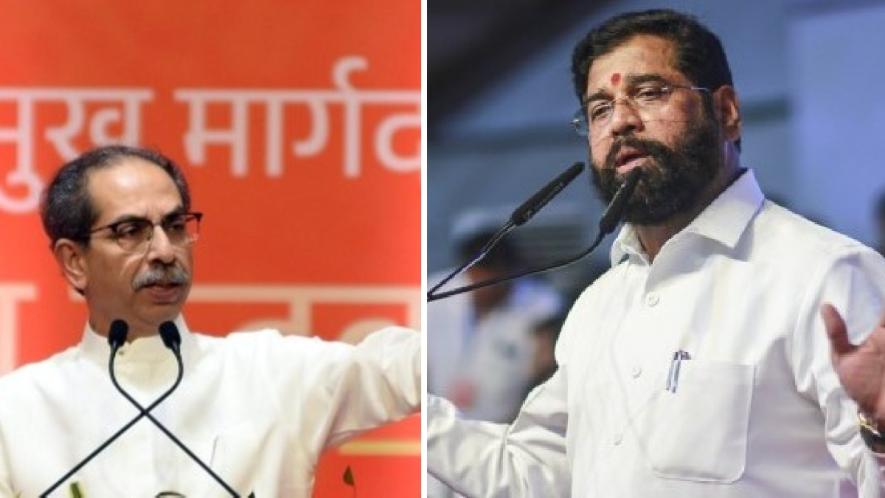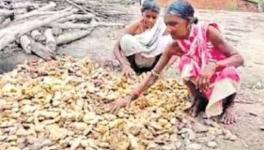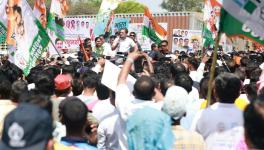Maharashtra Elections: Will BJP's Haryana Formula Succeed?

The Bharatiya Janata Party (BJP) 'micro-managed' caste polarisation in Haryana and also created a record by coming to power for the third consecutive time. Hence, the 'Haryana Pattern' is in discussion these days. But, will it be successful in the Maharashtra Assembly elections also?
To find the answer to this question, let's come straight to one fact-- that in the Lok Sabha elections, BJP was in a fighting position in Haryana, but in Maharashtra, it had lost badly. The question is what were the reasons for BJP's defeat and whether these still exist. If so, then it is sure to have an impact on the Assembly elections. These reasons may prove to be more vocal at the local level.
Actually, there were three important reasons for BJP's defeat in Maharashtra during the Lok Sabha elections:
1) The Leader of Maratha Movement, Jarange Factor
2) The opposition Maha Vikas Aghadi (MVA) alliance getting outright votes from Dalits and Muslims.
3) Wave of sympathy for Uddhav Thackeray and Sharad Pawar due to the breaking of their parties.
Marathas, a Decisive Vote Bank
If BJP has to win in Maharashtra, it will have to overcome these three challenges or obstacles. There are indications that BJP is fighting these elections on the lines of its Haryana strategy focusing on caste polarisation. But, in following this strategy, it would be a big mistake for BJP not to understand the caste strength in Maharashtra.
The population of Marathas in Maharashtra is 32%, which is much more than Jats in Haryana, and this vote bank can play an almost decisive role.
Also, the politics of the state has been revolving around this caste. Till now, there have been 12 Maratha Chief Ministers in Maharashtra spanning 30 years.
The turmoil in the minds of the poor Maratha community over the issue of reservation exploded through Manoj Jarange's Maratha Reservation Movement. This proved the biggest blow to BJP. The party could not win a single Lok Sabha seat in Marathwada, the centre of Jarange's movement, even though the region was considered a BJP stronghold. Also, the party could not even get double-digit success in the state and its Lok Sabha seats came down from 25 to only nine in the elections held in May this year.
Dalit and Muslim Solidarity
The major hindrance in the failure of BJP's Mahayuti was that MVA got Dalit and Muslim votes. Therefore, if the Mahayuti has to win, it has to ensure the division of these votes. But the main problem is the essence of the Dalit vote bank in the state.
There are 59 castes under the Dalit sub-caste in Maharashtra and their population is about 1.5 crore. Among these, the population of Mahar, Mang and leather workers constitute 90% of the total Dalit population.
Notably, the Mahar/Buddhist communities have the largest population and these voters are politically associated mainly with Prakash Ambedkar's party Bahujan Vanchit Aghadi, which is also known as an anti-BJP vote bank. But, election after election, Ambedkar's vote share has been falling. Even in the 2024 Lok Sabha elections, all these Dalit sub-castes had voted in large numbers for the MVA. This is the reason why BJP is currently busy terming the Maratha reservation movement as “anti-Dalit” and is aggressively pushing a Maratha versus Dalit factor poll campaign.
Second, the Muslim vote in the state is 12%, which is 5% more than the Muslim vote of 7% in Haryana, and if this is combined with the Maratha vote bank, then it may be very difficult for BJP to make a dent. This is the reason why Mahayuti, in a bid to neutralise this vote bank, has kept NCP’s Ajit Pawar active in the forefront.
Apart from this, the distribution of Muslim votes will also be decided by the performance of Asaduddin Owaisi's party, AIMM. However, this factor has not had much impact in the Lok Sabha elections.
Focus on Backward Classes
In Maharashtra, BJP wants to create Maratha vs OBC (Other Backward Classes) caste polarisation on the pattern of Jat vs 35 communities in Haryana. There are 346 castes in the OBC category in the state and their population is considered to be 40%.
BJP is using this vote bank to reduce the Maratha influence and as part of its strategy, it especially wants to give practical shape to the Mali, Dhangar and Vanjari formula. Efforts are also being made to include the remaining OBCs. It remains to be seen which way this vote bank goes in the Assembly elections.
However, OBC is not a caste in itself but a class, which includes several castes. Hence, there seems little possibility of all the castes voting in the same way. Even in the Lok Sabha elections in May, BJP did not draw even the slightest benefit from this formula.
At the same time, it is also true that in politics things do not always turn out the way we think. It is true that there may be some similarities between Maharashtra and Haryana, but the difference lies in the fact that the regional parties of Sharad Pawar and Uddhav Thackeray are in a strong position here. Also, unlike in Haryana, there is no direct contest between Congress and BJP in Maharashtra.
Who is Campaigning for BJP?
The big question is, who are the BJP leaders whose campaign can influence the elections. If we keep Narendra Modi aside for a while, even BJP's out-of-state campaigners, such as Amit Shah and Yogi Adityanath, cannot increase BJP votes in Maharashtra.
On the contrary, this may affect the Marathi vote bank which till now has been uneasy with North Indians and Gujaratis, as Shah comes from Gujarat and Yogi from Uttar Pradesh, and the MVA is fighting the entire election on the basis of Marathi pride and identity. In particular, Uddhav Thackeray is projecting Modi-Shah as “anti-Maharashtra” by citing the number of projects that have been shifted from Maharashtra to Gujarat in the past few years.
Also, this time the elections in Maharashtra are not being fought only on the issue of Hindutva. The reason is that this time the caste factor has become more dominant in the state elections and BJP has also realised that this election cannot be fought only on Hindu-Muslim issues. This is why the propaganda by fundamentalist Hindu leaders, like Yogi and Himanta Biswa Sarma, is not being given much importance here, as in Jharkhand, where polls are also being held.
Also, it seems that Modi may hold seven-eight election rallies, which is quite less. Even in the Haryana Assembly elections, Modi's campaign meetings were relatively less visible. Perhaps, this is also because it is felt that Modi has not been getting the same response as before.
The question is that in such a situation, if Shah is the key person involved in the BJP’s campaign, will it really benefit the party?
On the other hand, in the MVA’s election campaign, there are regional faces like Sharad Pawar and Uddhav Thackeray whom no Marathi face can match today. Also, the MVA campaign advertisements make it clear that the opposition alliance wants to make Marathi vs Gujarati an election issue.
The major issues in the MVA campaign is that the BJP-led Mahayuti government has promoted Gujarat's industry, corruption is rampant in the government, the financial condition of the state is poor, schemes are being run by taking loans and money is being diverted or siphoned etc.
Apart from this, the Ajit Pawar faction of NCP (part of the ruling Mahayuti) may prove to be the weakest link in this election, as it is in direct competition with the Sharad Pawar faction and had lost badly to the latter faction in the Lok Sabha elections.
Is Sangh Replacing Modi?
On the lines of the Haryana formula, Modi-Shah have handed over the responsibility of election campaign in Maharashtra to BJP and RSS (Rashtriya Swayamsevak Sangh) leaders. The party fears that the more Modi campaigns, the more the MVA will benefit. Because the MVA is fighting the entire election against the 'anti-Maharashtra Gujarati lobby'. But, the absence of Modi and other star BJP campaigners may impact other state party leaders.
However, with the end of Diwali, campaigning for Maharashtra Assembly elections has started in full swing. After the announcement of manifestos of both the alliances, both sides are now busy placating rebels to minimise any impact they could have on the poll outcome. The coalition that manages this whole exercise better, could also bring better results.
The writer is an independent journalist based in Maharashtra. The views are personal.
(This is the translated version of the original article in Hindi, published on our Hindi website.)
Get the latest reports & analysis with people's perspective on Protests, movements & deep analytical videos, discussions of the current affairs in your Telegram app. Subscribe to NewsClick's Telegram channel & get Real-Time updates on stories, as they get published on our website.
























